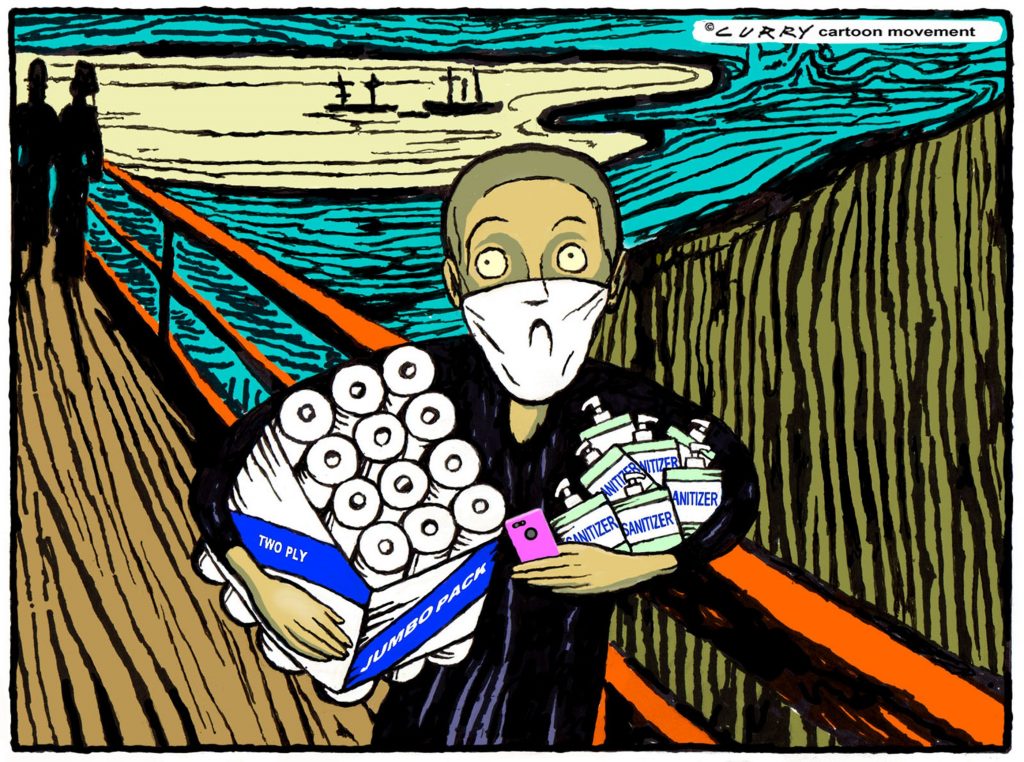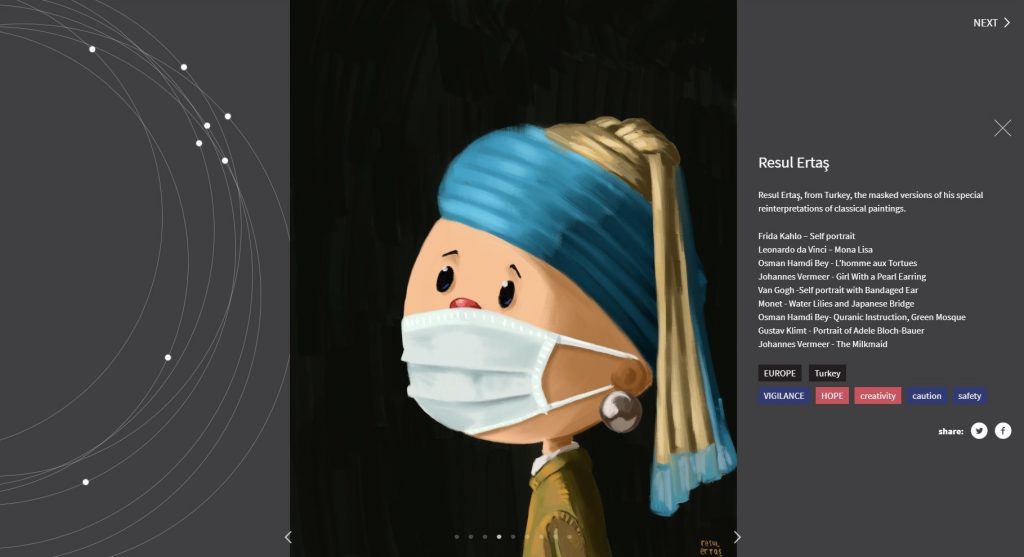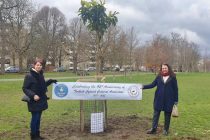In March, the world as we know it came to a crashing halt. The coronavirus pandemic was taking hold in all four quarters of the planet, prompting governments to take drastic actions to contain the deadly disease.
Borders, air space and businesses were closed, and people were ordered to stay indoors as our hospitals became overwhelmed trying to treat huge numbers of sick people for a virus they knew little about.
The lives of our loved ones lost to Covid-19 were commuted into simple death statistics, projected by media daily, resulting in a morbid fascination of which country had the most coronavirus fatalities.
Amongst the fear, stress and sorrow, there was also hope. A desire that this global crisis could generate a different, kinder and greener planet, and that our time in lockdown could be spent improving ourselves.
Frontline heroes became the new celebrities, their courage, compassion and resilience inspiring us all to do better. We indulged in new activities to help us find inner peace, wellbeing and creativity.
Perhaps the most striking aspect was the fact these events were being experienced simultaneously by millions of people all over the world. Covid-19 transcended language and cultural barriers, as well as politics and geographic boundaries, to generate common responses and emotions in us all.
In such surreal times, who better to document our feelings than artists?
The newly launched covidoscope.org website captures the artistic expressions of the COVID-19 era. Produced and curated by the Yunus Emre Institute, this special project features dozens of international artists, from illustrators to musicians and filmmakers, whose work offers a rich kaleidoscope of emotions and experiences of the past six months.
Click here to visit Covidoscope.org website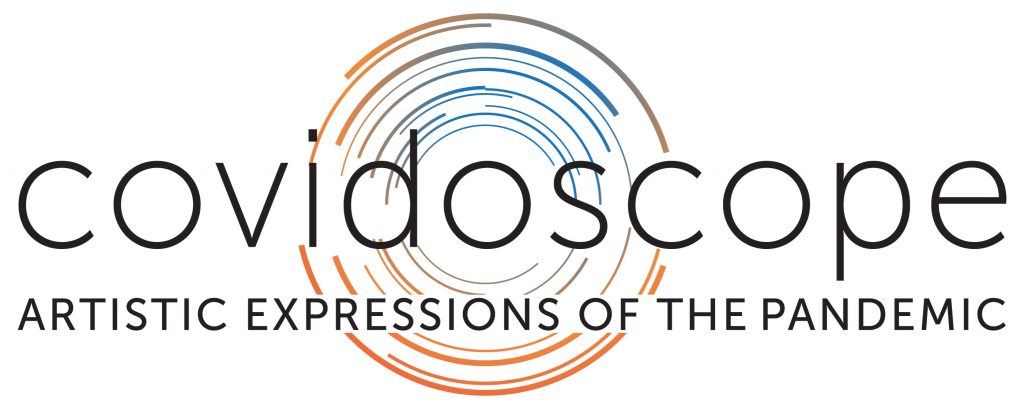
T-VINE talked to Ayşe Gökçen Yücel, one of the project team and Co-ordinator at the Yunus Emre Institute in London. Here’s what she had to say about Covidoscope:
“We have been working on Covidoscope since March. The idea for the project came from Fatmanur Samastı, who works at the Yunus Emre Institute headquarters in Ankara. Fatmanur presented her idea to Prof Şeref Ateş – the President of the Institute – who loved the concept and gave her the go-ahead. Fatmanur assembled a team that included myself and Nilüfer Kol.”
“The COVID-19 outbreak struck without warning, dropping the entire global population in at the deep end of unexpected experiences. During these extraordinary times, we developed a project which highlights the unity of emotions, hope and solidarity. Essentially, we are creating an emotional archive of the pandemic period using the universal language of art.”
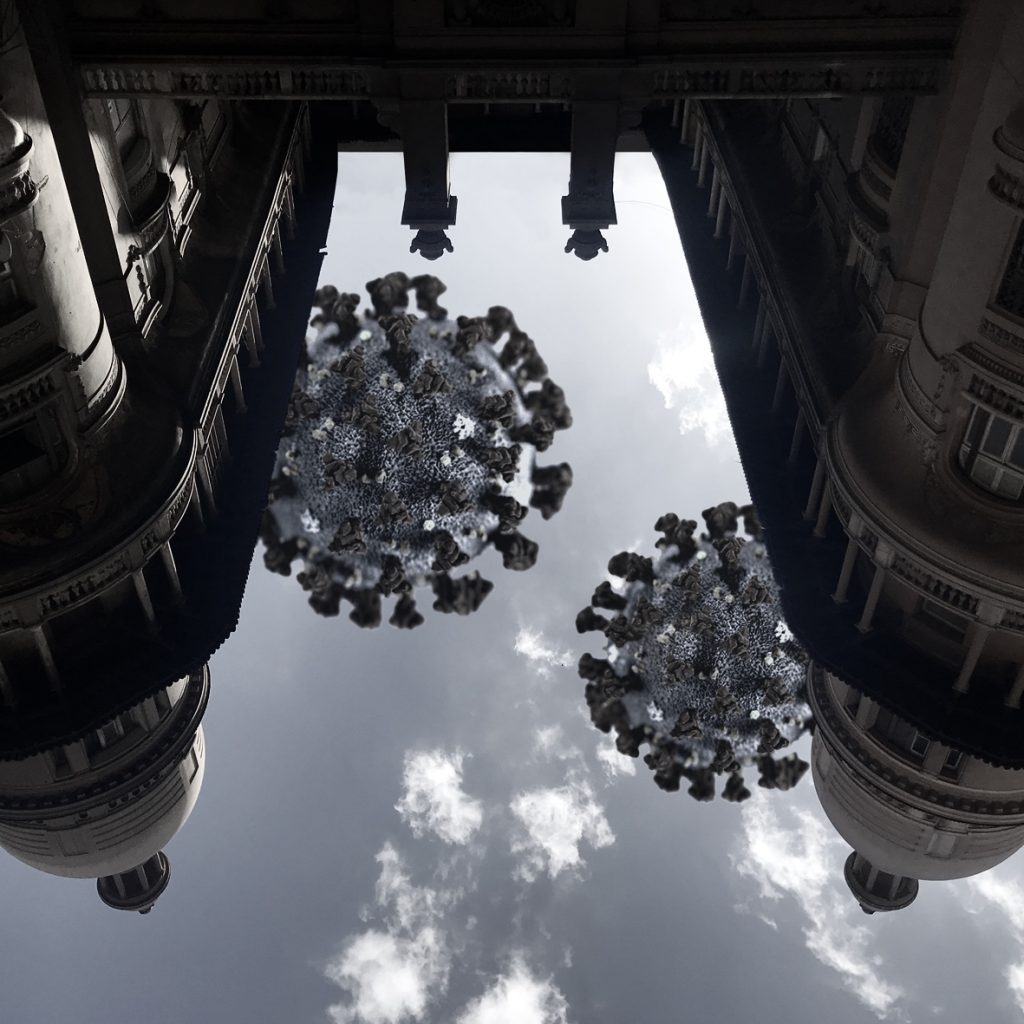
Ms. Yücel explained how they were able to source diverse artists and work for the project, and how these works were selected and categorised:
“The Yunus Emre Institute has 58 branches in 48 countries. We contacted our branches and asked them to look out for interesting local artistic expressions that appeared on social media and online during this period. We also tried to engage with artists in countries where the Institute didn’t have a presence. There was lots of creative output worldwide, people from different fields producing amazing narratives. We ended up with a huge data pool of artists and works.”
The focal point of Covidoscope was the emotions: what was this virus invoking in us? The team drew on the help of experts to help define the purpose and themes.
Social distancing explained with match sticks
“Together with our project advisors Prof. Kemal Sayar, Saadet Özen and Dr Tiffany Watt Smith, we started to review and select the most suitable works for Covidoscope. From the outset, the most important aspect we wanted to capture were emotions.
“We could see that in this single instance, people worldwide were simultaneously reacting to a common situation. With the help of our consultants, we created seven main emotion categories – fear, kindness, hope, sorry, longing, joy, and vigilance – which cascaded into sub-emotion themes.
“We were all living through an unexpected and difficult process, which was generating solidarity from the people, so it felt appropriate that we emphasise the unifying aspects of their collective emotional experiences. The curation of the artwork for Covidoscope was made within this framework and backdrop,” said Ms Yücel.
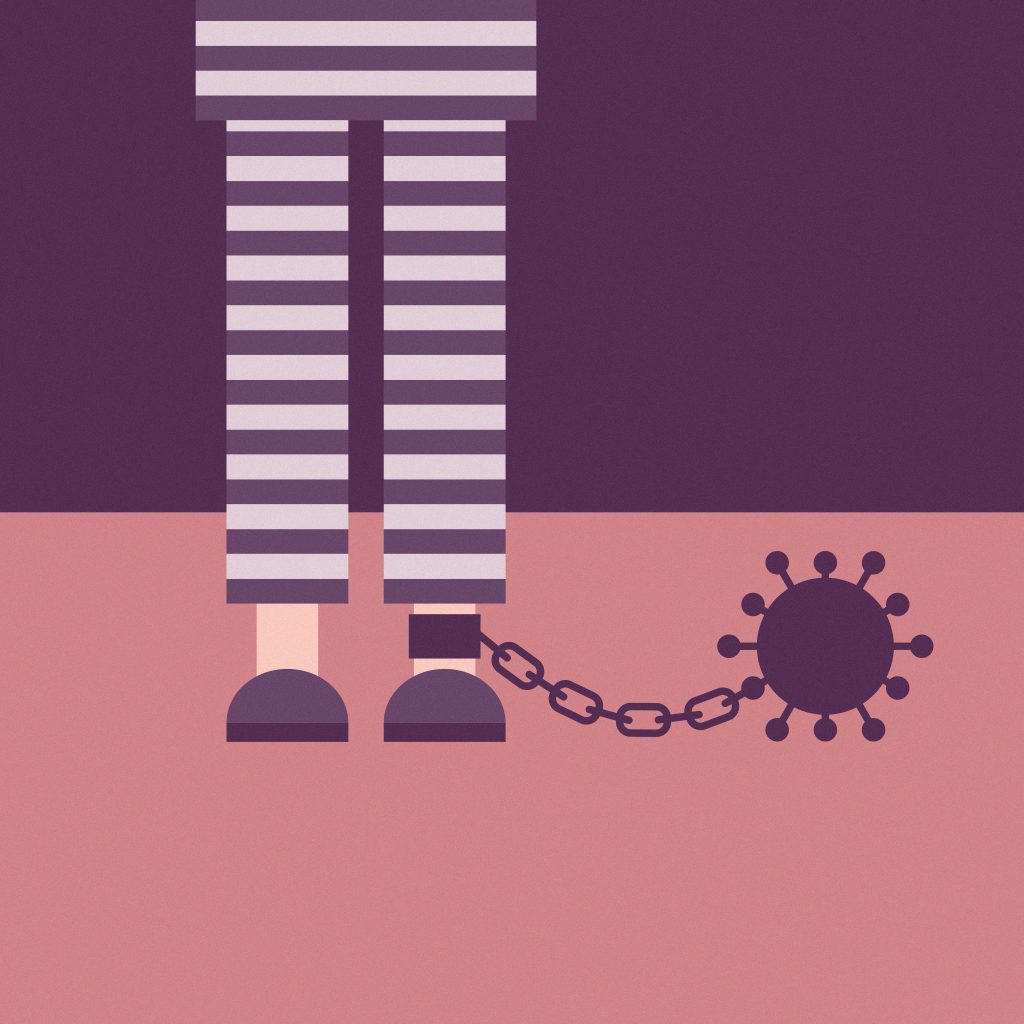
“The project started out on our social media accounts, with the first creative expressions being shared in May. We now have a multi-lingual site, with language options in English, Turkish, Arabic and Spanish, and the artwork listed according to the emotions they reflect and evoke,” she continued.
“None of the artists were commissioned. After our local teams informed us about them, we contacted each one to ask if they would like to be involved and ask for their consent to feature their artwork.”
Creative collective 120 Minutes sing a parody song about coronavirus
Covidoscope currently features the work of some 100 artists from over forty countries, including Britain, Spain, India, France, Jordan, Kuwait, Turkey, Ukraine, Croatia, Lithuania, Azerbaijan, Australia, USA, Iran and Italy. Most have produced individual works, but others, such as 120 Minutes are a creative collective singing a parody song about the coronavirus that was produced in Switzerland and sang in multiple languages, features 20 artists.
The Covidoscope collection presents lesser known artists alongside household names. Some of the prominent artists and institutions featured are Turkish actress and screenwriter Gülse Birsel, the Fitzwilliam Museum in Cambridge, and award-winning cartoonists Christian Adams, whose work can be seen in the London Evening Standard, America’s Tom Curry (work pictured very top), Jordan’s Naser Jafari, and Palestinian Emad Hajjaj.
In terms of the project’s impact, Ms Yücel said that during this “pivotal moment in the world’s history”, Covidoscope “forms an emotive diary of life during a pandemic.”

Her view is echoed by one of the project’s consultants Dr Tiffany Watt Smith. The British academic is the author of The Book of Human Emotions, making her a perfect partner for the team creating this striking digital memory project.
Dr Watt Smith called Covidoscope “fascinating and important” because of the legacy it will offer:
“In the midst of the pandemic, amid health fears, rapidly changing information, and the changes to our working and home lives, it has been hard for many of us to do more than react. So it’s a testament to the generosity and foresight of the team behind the Covidoscope that they put one eye towards the future and recognised the need to create an accessible archive of the traces of our emotional journey through COVID-19 together, bringing together artworks and events which might otherwise have disappeared into the digital flotsam.”
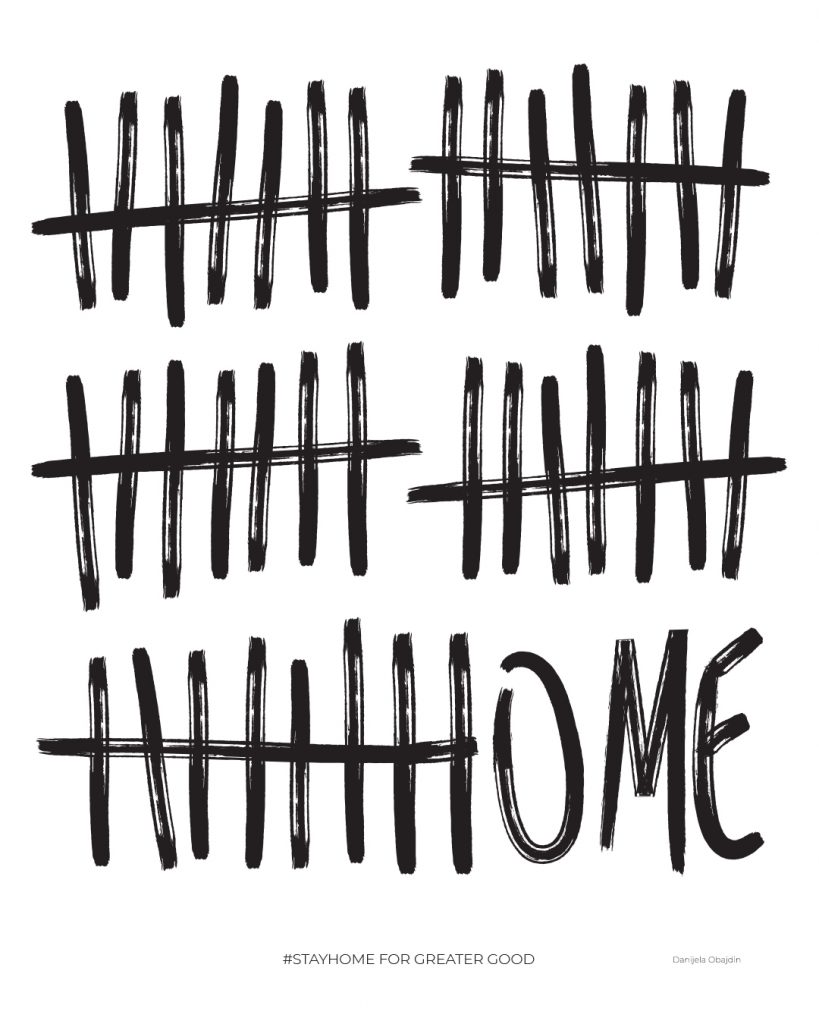
“As a historian who specialises in emotions, I can already imagine the ways someone like me would use this resource in the future, to try to make sense of how people across the world felt and coped in this strange time,” she added.
Thanking the Yunus Emre Institute for letting her be part of the project, Dr Watt Smith remarked on enjoying the project for its aesthetic properties and unifying values.
“Right now, the pleasure I take in looking at the website is more personal. I have enjoyed seeing the moments of commonality when the world can feel so divisive and fractured. And given that, right now, my own experience of time is that it is slowing down, speeding up and looping in on itself, it has been a great relief to look at the website and remember how the last six months unfolded.”
The Covidoscope project remains a live and growing online platform, with the work of many more artists to be added over the course of time.
Click here to visit the site and explore artwork and themes.
Alongside each of the individual pieces of art displayed on the interactive website, created by Hüseyin Kuşcu of Kakare Interactive, is a solar system with small planets orbiting. Click on a planet for cool quotes and proverbs from around the world. This feature will be developed further in time, Ms Yücel said, to give facts and insights about the different cultures and people the quotes are from.
Main image, top, by American award-winning illustrator and cartoonist Tom Curry


